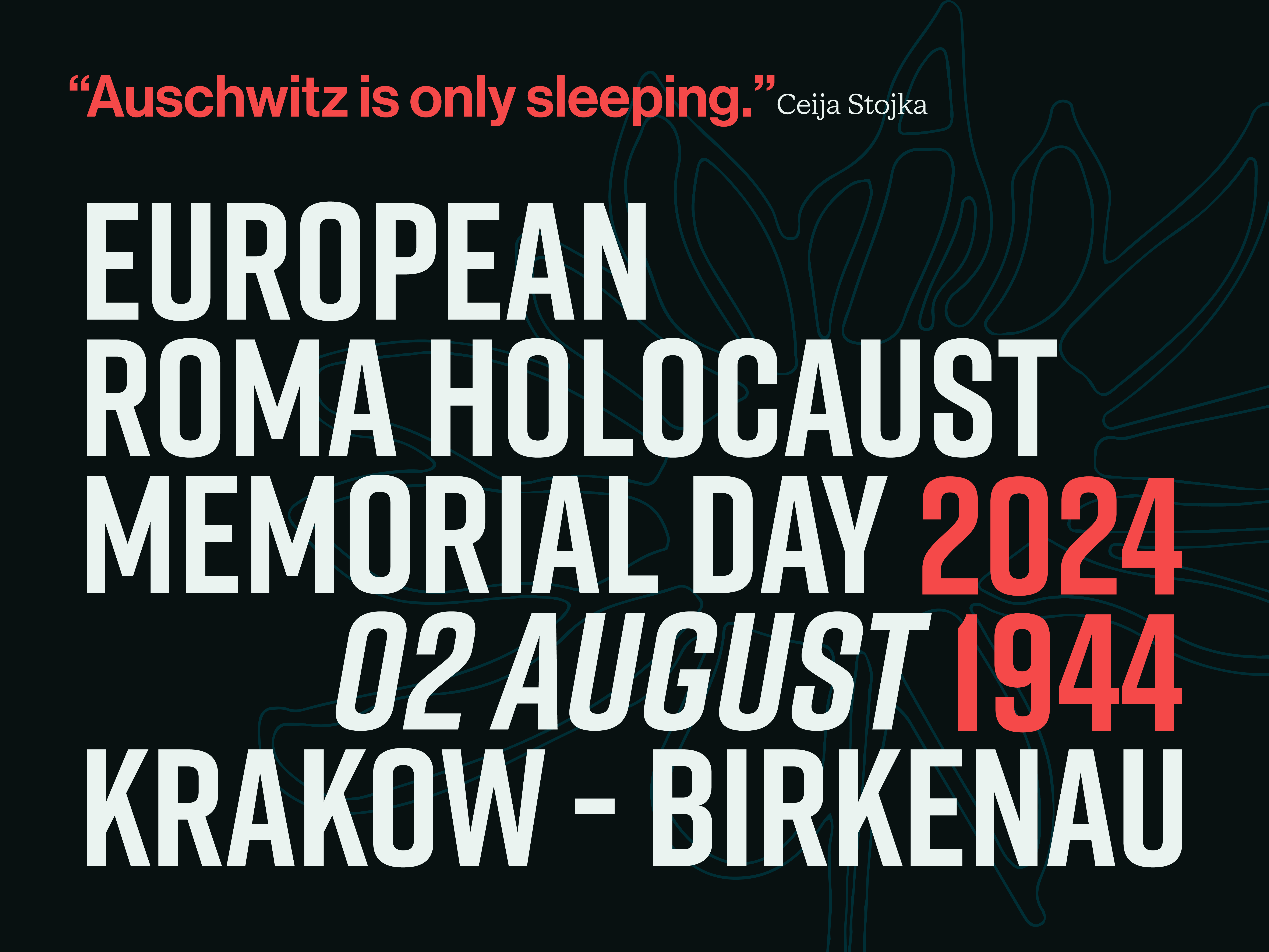To mark the European Holocaust Memorial Day for Roma and Sinti, the Roma Foundation for Europe and its network members are co-hosting a series of events, including a conference, an exhibition and a visit to Auschwitz-Birkenau to commemorate the 4,300 Roma and Sinti who were murdered there 80 years ago on the night of 2 August 1944.
The mission is to re-tell stories and educate the younger generation about the horrors of the Holocaust so that the Roma are no longer forgotten victims.
Historians estimate that over 500,000 Romani and Sinti were killed by the Nazis and their collaborators during World War II. In December 1942, Heinrich Himmler ordered the deportation of all Roma from the Greater Germanic Reich, and most were sent to the specially established “Gypsy family camp” at Auschwitz-Birkenau.
At a time when Europe is witnessing a surge in far-right activities, the Holocaust remembrance will start on 1 August with an exhibition titled "Roma Heroes of Resistance" by self-taught Romanian artist Emanuel Barica at the Auditorium Maximum in Krakow. This will be followed by an international conference titled "My Testimony Is for Young People," which will include a plenary session with Zeljko Jovanovic, President of the Roma Foundation for Europe. In the evening, there will be a memorial concert at Krakow Philharmonic Hall, featuring "O Lungo Drom (The Long Road)", an oratorio composed by Ralf Yusuf Gawlick and performed by Clara Meloni (Soprano), Christoph Filler (Baritone), Lászl ó Rácz (Cimbalom) and the Alban Berg Ensemble Wien.
Stressing the importance of the Holocaust commemoration, Zeljko Jovanovic, President of the Roma Foundation for Europe, said
"We've been building a memory of the atrocities committed against our ancestors in Auschwitz for decades, and recognition took just as long. It is still valid to say that public officials must move beyond crude electoral calculation and take action to ensure that memorials are built, schools educate, and the media broadcast the truth about the Roma genocide to help liberate us from the prison of past and present racism. But what can we expect from public institutions and officials when our parliaments and governments are plagued by far-right and extremist politics? Does Europe really remember, and can we expect protection?
It is our moral responsibility as Roma to turn this memory into a vehicle of purpose and self-empowerment and create unity across national citizenship, languages and religions to ensure our message is heard and our demands are taken seriously."
Commenting on the exhibition by Emanuel Barica, Timea Junghaus, Executive Director of ERIAC, said:
“The trauma of the Holocaust is passed down through generations. By educating ourselves about our Roma ancestors’ suffering, we not only acknowledge the ‘banality of evil’ but also showcase Roma resilience, survival strategies, and the need for political resistance against oppression. Artists and creatives have been vital in preserving the memory of the Roma Holocaust and passing it on. In a time of rising anti-Roma sentiments, confronting our history and promoting education is crucial. Art heals, and Roma creative talents play a key role in this process.”
Barica sees himself as an artistic activist and is committed to overcoming the discrimination of the Roma and Sinti and the recognition of their exclusion in the past and present.
This year’s commemoration will for the first time unite the Roma Foundation for Europe and its network members: the European Roma Institute for Arts and Culture (ERIAC), the Roma Education Fund (REF), the Roma Entrepreneurship Development Initiative (REDI) and Roma for Democracy (RFD).
This year, the image for our commemoration is inspired by the evocative sunflower drawings of Ceija Stojka. Ceija'stojka, a Roma Holocaust survivor, was an extraordinary artist and writer whose works poignantly capture the resilience and beauty of the Roma spirit amidst the horrors of genocide. Her art, particularly her sunflowers, symbolizes hope, endurance, and the unyielding strength of the Roma people. Ceija's legacy is a testament to the enduring power of art to inspire, heal, and unite communities in the face of unimaginable adversity.
The event series is led by NGOs and institutions including the Central Council and the Documentation and Cultural Centre of German Sinti and Roma, in collaboration with the Association of Roma in Poland and the Centre for Roma History and Culture in Oświęcim.
Visuals for participation can be downloaded for use in joining the commemoration online and sharing on social media.

Roma Foundation for Europe
The latest

Serbia Must Amend Missing Persons Alert System to Protect Vulnerable Adults

Constitutional Review of the Šutar Law Confirms Serious Rule-of-Law Concerns

Europe’s Growth Depends on Roma Talent
Browse by category
Campaigns
Events
Facts
Press
Voices
For media inquiries:
[email protected]Sign up here so you don’t miss out on campaign updates, upcoming events and other news from the Roma Foundation for Europe and our network.
Sign up for our newsletter